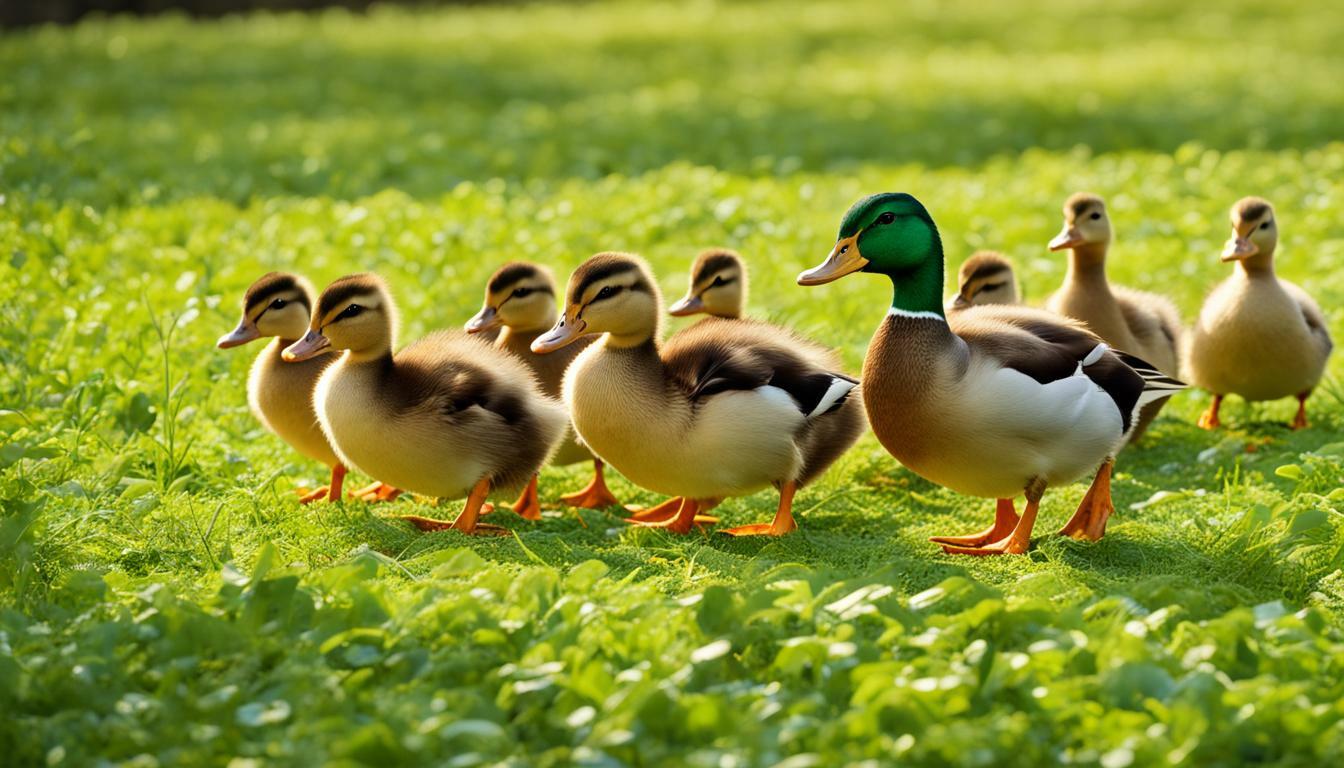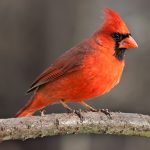Have you ever wondered if ducks eat peanuts? Perhaps you’ve seen these birds at the park or in your backyard, and you’re curious about what they eat. In this article, we’ll explore the relationship between ducks and peanuts, and whether this popular snack is a suitable food for these feathered creatures.
As you read on, you’ll learn about the natural diet preferences of ducks, their nutritional needs, and whether peanuts can provide any benefits or risks. We’ll also discuss alternatives to peanuts that can be offered as part of a healthy and balanced diet for ducks.
Key Takeaways:
- Ducks mainly consume plants, insects, and small aquatic creatures.
- Peanuts can be fed to ducks, but should not be the sole source of food.
- Ducks require a diverse and balanced diet to maintain optimal health.
- There are safe and healthy alternatives to peanuts that can be provided for ducks.
Understanding the Diet of Ducks
Before you delve into the question of whether ducks can eat peanuts, it’s crucial to understand their overall diet and nutritional needs. Ducks are omnivorous birds and consume a variety of natural foods, including plants, insects, and other small aquatic creatures.
| Natural Foods Consumed by Ducks | Examples of Foods |
|---|---|
| Plants | Grasses, aquatic weeds, wild rice, clover |
| Insects | Mosquitoes, dragonflies, beetles, snails |
| Small Aquatic Creatures | Frogs, fish, mollusks, crustaceans |
A healthy duck diet must contain adequate amounts of protein, fat, vitamins, and minerals to maintain optimal health. A balanced diet ensures that ducks have the necessary nutrients to grow, reproduce, and maintain their feathers, which provide insulation and waterproofing.
To ensure a healthy duck diet, it’s best to provide a variety of suitable natural foods that align with their preferences and nutritional requirements. However, supplemental feeding may be necessary in areas where natural food sources are limited or during certain times of the year.
If you opt to feed ducks, ensure you’re feeding them a nutritious and balanced diet that meets their needs. Avoid feeding ducks with foods that are high in salt, sugar, or unhealthy fats as these may cause health complications. Instead, choose healthy and safe alternative foods that provide the necessary nutrients for their health and well-being.
Can Ducks Eat Peanuts?
Feeding ducks is a common activity in parks and ponds, but you may wonder what foods are safe for them to consume. When it comes to peanuts, it’s essential to consider the suitability and impact of this food on the overall diet of ducks.
So, can ducks eat peanuts? The answer is yes, but in moderation. While peanuts can provide some nutritional value to ducks, they should not be the sole source of food. Ducks require a diverse and balanced diet that aligns with their natural preferences and nutritional needs.
When feeding peanuts to ducks, it’s important to keep in mind that they are high in fat and salt. Too much salt can lead to dehydration and health problems, while excess fat can cause liver disease and obesity. As such, peanuts should only be given as an occasional treat, and in small quantities.
Additionally, it’s crucial to avoid feeding ducks peanuts that are coated in flavorings or salt, as these can be harmful to their health. Raw, unsalted peanuts are the safest option for ducks.
While peanuts can provide some nutritional value to ducks, it’s important to prioritize a balanced and varied diet that includes other suitable foods. Ensure that ducks have access to an abundance of insects, plants, and small aquatic creatures that meet their nutritional needs.
Overall, feeding peanuts to ducks is possible, but it should be done with caution and in moderation. By offering a diverse and balanced diet, you can promote the health and well-being of ducks in your area.
The Impact of Peanuts on Ducks
Feeding ducks may seem like a harmless activity, but it’s essential to consider the impact of the food you offer. When it comes to peanuts, there are some potential risks that you should be aware of.
The Risks of Feeding Ducks Peanuts
Peanuts are high in fat and protein, which may seem like a good thing. However, too much fat can lead to obesity and other health issues for ducks. Additionally, peanuts can be hard for ducks to digest, which can cause digestive problems and even choking.
Another potential risk of feeding peanuts to ducks is that it may alter their natural diet preferences. If ducks become accustomed to eating peanuts, they may not seek out other, more nutritious foods that are essential to their health.
The Benefits of Feeding Ducks Peanuts
While there are some risks associated with feeding peanuts to ducks, there are also some potential benefits. Peanuts are a good source of protein, which is essential for duck growth and development. Additionally, peanuts may help ducks to build up fat reserves that can be valuable during migration.
The Bottom Line
So, should you feed ducks peanuts? It’s ultimately up to you, but it’s important to do so in moderation. While peanuts can provide some nutritional benefits, they should not be the sole source of food for ducks. Additionally, it’s important to prioritize a diverse and balanced diet that aligns with the natural preferences and nutritional needs of ducks.
If you do decide to feed ducks peanuts, be sure to offer them in small quantities and avoid overindulging them. It’s also a good idea to offer a variety of other healthy foods, such as grains, fruits, and vegetables.
Alternatives to Peanuts for Ducks
If you’re looking to feed ducks in your area, it’s important to prioritize a healthy and balanced diet. While peanuts may be a tempting option, there are plenty of alternative foods that can provide ducks with the necessary nutrients for optimal health.
One option is to offer a variety of greens, including lettuce, kale, and spinach. These leafy vegetables are a great source of vitamins and minerals that can support a healthy immune system and promote strong feathers.
Another option is to provide cracked corn or oats. These grains are easy for ducks to digest and can provide a good source of energy. Just be sure to avoid feeding ducks uncooked rice, as it can cause digestive issues.
Other healthy foods for ducks include mealworms, earthworms, and other small insects. These can provide protein and other essential nutrients that support overall health.
Finally, it’s important to avoid feeding ducks bread, as it can provide little nutritional value and can actually harm their digestive system in large quantities.
By offering a diverse range of foods that align with the nutritional needs and natural preferences of ducks, you can promote their health and well-being.
Conclusion
In conclusion, while ducks can eat peanuts, it’s important to offer them in moderation as part of a diverse and balanced diet. Ducks have natural food preferences that align with their nutritional needs, which includes plants, insects, and small aquatic creatures. Peanuts may provide some nutritional value, but they should not be the sole source of food for ducks. Feeding ducks with an excess of peanuts can have negative effects on their health, such as obesity and malnutrition. Therefore, it’s important to prioritize a healthy and safe diet that meets their nutritional needs. If you would like to feed ducks, there are several alternatives to peanuts that provide the necessary nutrients for their optimal health. Suitable foods include seeds, grains, fruits, and vegetables. By offering a diverse range of safe foods, you can promote the health and well-being of ducks in your area. Remember, feeding ducks can be a fun and rewarding activity, but it’s important to do it safely and responsibly. Ensure that the food you offer is suitable for their digestive system, and avoid feeding them processed or unhealthy foods that may harm their health. By following these guidelines and prioritizing a diverse and balanced duck diet, you can ensure that these beautiful creatures thrive in your local environment.Are Mice a Part of a Duck’s Natural Diet?
Mice are not typically a part of the natural diet of ducks. Ducks primarily feed on plant materials, insects, small fish, and aquatic invertebrates. While they may occasionally eat small rodents if available, it is not a significant part of their diet. Ducks are opportunistic feeders, adapting their diet based on their environment and food availability.
FAQ
Q: Do ducks eat peanuts?
A: Yes, ducks can eat peanuts, but they should be given in moderation.
Q: What do ducks typically eat?
A: Ducks have a natural preference for plants, insects, and small aquatic creatures.
Q: Are peanuts a suitable addition to a duck’s diet?
A: Peanuts can be included in a duck’s diet, but they should not be the sole source of food.
Q: Can peanuts provide adequate nutrition for ducks?
A: While peanuts may offer some nutritional value, ducks require a diverse and balanced diet.
Q: Are there any negative effects of feeding peanuts to ducks?
A: Feeding peanuts to ducks should be done in moderation to avoid any potential negative effects.
Q: What are some alternatives to peanuts for ducks?
A: Healthy and safe alternatives to peanuts include plants, insects, and other small aquatic creatures.










